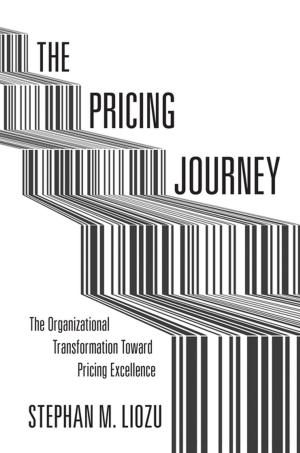Winning Success With Assertive Marketing
Business & Finance, Business Reference, Business Communication, Management & Leadership, Leadership| Author: | Warren Shuman | ISBN: | 9781301739899 |
| Publisher: | Warren Shuman | Publication: | September 27, 2013 |
| Imprint: | Smashwords Edition | Language: | English |
| Author: | Warren Shuman |
| ISBN: | 9781301739899 |
| Publisher: | Warren Shuman |
| Publication: | September 27, 2013 |
| Imprint: | Smashwords Edition |
| Language: | English |
Are you thinking of starting a new business? Have you owned an existing business for many years? We are faced with making business judgments and decisions every day. We would like to believe that our decisions are made based upon our best
reasonable and logical methods.
The two major areas of reasoning are: Analytical and Inductive. In business you must train yourself to become proficient in the application of the former. The latter is important and will be useful, but Analytical Reasoning based upon factual research, must be the main driver of your business decisions.
Inductive Reasoning draws upon your life experiences education, hobbies, books, entertainment, interests, politics, travels, languages, friends, family, work place, married or single... all have an impact upon your attitudes, beliefs, and habits.
While your life experiences will provide you with that subconscious “gut-feel” that may help you to recognize possible opportunities, Intuitionalone, can and will lead you astray with its accompanied euphoria, wherein your idea, concept, or
vision just “feels” right. Your Rule #1 must be Check it out. Research and Analysis may confirm your intuitive reasoning –getting the facts will save you much time and money.
Analytical reasoning is based upon facts, not opinions. It
is sometimes difficult to separate facts from opinions, when you are dealing with people’s thoughts, feelings and their genuine desire to be of assistance. It is part of the human condition that most of us are reluctant to respond to a question with, “I don’t know.” When we do not have factual answers, we try to
divine an answer and will rationalize the “best”answer to please, rooted in our opinion or Inductive Reasoning.
Research and Analysis are your primary tools for achieving success whatever your field of business. Tabulations and evaluation of the results of your efforts will contribute positively to your accurate judgments during your decision-making processes.
Quantitative research describes demographic information based upon numbers, percentages, averages, medians, statistics, tabulations, census data, zip-codes, populations, expenses, income, age-groups, consumer data, product costs & sales, market segments, audiences, readership, viewers, investments
and returns, ratios, decimals, metrics, budgeting – and all finite data.
As Quantitative data is indispensible to your professional Business Plan, Qualitative information is equally indispensible to forming the strategies and tactics that will become the foundation of your Marketing Plan. Your Business Plan comprises the data basis for your projections and objectives. Your Marketing Plan will be the road-map that guides your business efforts toward attaining your goals... and success.
Are you thinking of starting a new business? Have you owned an existing business for many years? We are faced with making business judgments and decisions every day. We would like to believe that our decisions are made based upon our best
reasonable and logical methods.
The two major areas of reasoning are: Analytical and Inductive. In business you must train yourself to become proficient in the application of the former. The latter is important and will be useful, but Analytical Reasoning based upon factual research, must be the main driver of your business decisions.
Inductive Reasoning draws upon your life experiences education, hobbies, books, entertainment, interests, politics, travels, languages, friends, family, work place, married or single... all have an impact upon your attitudes, beliefs, and habits.
While your life experiences will provide you with that subconscious “gut-feel” that may help you to recognize possible opportunities, Intuitionalone, can and will lead you astray with its accompanied euphoria, wherein your idea, concept, or
vision just “feels” right. Your Rule #1 must be Check it out. Research and Analysis may confirm your intuitive reasoning –getting the facts will save you much time and money.
Analytical reasoning is based upon facts, not opinions. It
is sometimes difficult to separate facts from opinions, when you are dealing with people’s thoughts, feelings and their genuine desire to be of assistance. It is part of the human condition that most of us are reluctant to respond to a question with, “I don’t know.” When we do not have factual answers, we try to
divine an answer and will rationalize the “best”answer to please, rooted in our opinion or Inductive Reasoning.
Research and Analysis are your primary tools for achieving success whatever your field of business. Tabulations and evaluation of the results of your efforts will contribute positively to your accurate judgments during your decision-making processes.
Quantitative research describes demographic information based upon numbers, percentages, averages, medians, statistics, tabulations, census data, zip-codes, populations, expenses, income, age-groups, consumer data, product costs & sales, market segments, audiences, readership, viewers, investments
and returns, ratios, decimals, metrics, budgeting – and all finite data.
As Quantitative data is indispensible to your professional Business Plan, Qualitative information is equally indispensible to forming the strategies and tactics that will become the foundation of your Marketing Plan. Your Business Plan comprises the data basis for your projections and objectives. Your Marketing Plan will be the road-map that guides your business efforts toward attaining your goals... and success.















